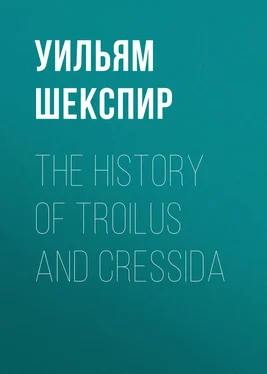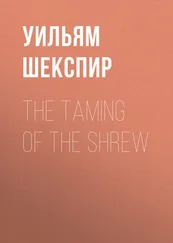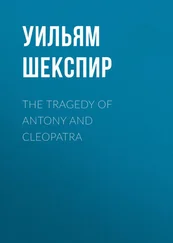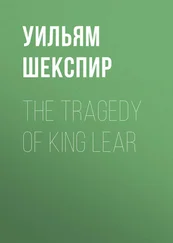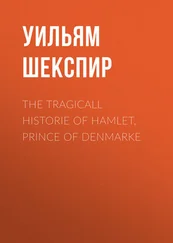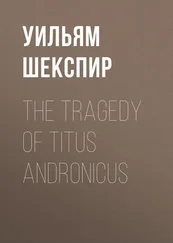Уильям Шекспир - The History of Troilus and Cressida
Здесь есть возможность читать онлайн «Уильям Шекспир - The History of Troilus and Cressida» — ознакомительный отрывок электронной книги совершенно бесплатно, а после прочтения отрывка купить полную версию. В некоторых случаях можно слушать аудио, скачать через торрент в формате fb2 и присутствует краткое содержание. Жанр: Европейская старинная литература, Драматургия, foreign_dramaturgy, на английском языке. Описание произведения, (предисловие) а так же отзывы посетителей доступны на портале библиотеки ЛибКат.
- Название:The History of Troilus and Cressida
- Автор:
- Жанр:
- Год:неизвестен
- ISBN:нет данных
- Рейтинг книги:5 / 5. Голосов: 1
-
Избранное:Добавить в избранное
- Отзывы:
-
Ваша оценка:
- 100
- 1
- 2
- 3
- 4
- 5
The History of Troilus and Cressida: краткое содержание, описание и аннотация
Предлагаем к чтению аннотацию, описание, краткое содержание или предисловие (зависит от того, что написал сам автор книги «The History of Troilus and Cressida»). Если вы не нашли необходимую информацию о книге — напишите в комментариях, мы постараемся отыскать её.
The History of Troilus and Cressida — читать онлайн ознакомительный отрывок
Ниже представлен текст книги, разбитый по страницам. Система сохранения места последней прочитанной страницы, позволяет с удобством читать онлайн бесплатно книгу «The History of Troilus and Cressida», без необходимости каждый раз заново искать на чём Вы остановились. Поставьте закладку, и сможете в любой момент перейти на страницу, на которой закончили чтение.
Интервал:
Закладка:
William Shakespeare
The History of Troilus and Cressida
PRIAM, King of Troy
His sons:
HECTOR
TROILUS
PARIS
DEIPHOBUS
HELENUS
MARGARELON, a bastard son of Priam Trojan commanders:
AENEAS
ANTENOR
CALCHAS, a Trojan priest, taking part with the Greeks
PANDARUS, uncle to Cressida
AGAMEMNON, the Greek general
MENELAUS, his brother Greek commanders:
ACHILLES
AJAX
ULYSSES
NESTOR
DIOMEDES
PATROCLUS
THERSITES, a deformed and scurrilous Greek
ALEXANDER, servant to Cressida
SERVANT to Troilus
SERVANT to Paris
SERVANT to Diomedes
HELEN, wife to Menelaus
ANDROMACHE, wife to Hector
CASSANDRA, daughter to Priam, a prophetess
CRESSIDA, daughter to Calchas Trojan and Greek Soldiers, and Attendants
SCENE: Troy and the Greek camp before it
PROLOGUE TROILUS AND CRESSIDA PROLOGUE
In Troy, there lies the scene. From isles of Greece
The princes orgillous, their high blood chaf'd,
Have to the port of Athens sent their ships
Fraught with the ministers and instruments
Of cruel war. Sixty and nine that wore
Their crownets regal from th' Athenian bay
Put forth toward Phrygia; and their vow is made
To ransack Troy, within whose strong immures
The ravish'd Helen, Menelaus' queen,
With wanton Paris sleeps-and that's the quarrel.
To Tenedos they come,
And the deep-drawing barks do there disgorge
Their war-like fraughtage. Now on Dardan plains
The fresh and yet unbruised Greeks do pitch
Their brave pavilions: Priam's six-gated city,
Dardan, and Tymbria, Helias, Chetas, Troien,
And Antenorides, with massy staples
And corresponsive and fulfilling bolts,
Sperr up the sons of Troy.
Now expectation, tickling skittish spirits
On one and other side, Troyan and Greek,
Sets all on hazard-and hither am I come
A Prologue arm'd, but not in confidence
Of author's pen or actor's voice, but suited
In like conditions as our argument,
To tell you, fair beholders, that our play
Leaps o'er the vaunt and firstlings of those broils,
Beginning in the middle; starting thence away,
To what may be digested in a play.
Like or find fault; do as your pleasures are;
Now good or bad, 'tis but the chance of war.
ACT I. SCENE 1. Troy. Before PRIAM'S palace
Enter TROILUS armed, and PANDARUS
TROILUS. Call here my varlet; I'll unarm again.
Why should I war without the walls of Troy
That find such cruel battle here within?
Each Troyan that is master of his heart,
Let him to field; Troilus, alas, hath none!
PANDARUS. Will this gear ne'er be mended?
TROILUS. The Greeks are strong, and skilful to their strength,
Fierce to their skill, and to their fierceness valiant;
But I am weaker than a woman's tear,
Tamer than sleep, fonder than ignorance,
Less valiant than the virgin in the night,
And skilless as unpractis'd infancy.
PANDARUS. Well, I have told you enough of this; for my part,
I'll not meddle nor make no farther. He that will have a cake
out of the wheat must needs tarry the grinding.
TROILUS. Have I not tarried?
PANDARUS. Ay, the grinding; but you must tarry the bolting.
TROILUS. Have I not tarried?
PANDARUS. Ay, the bolting; but you must tarry the leavening.
TROILUS. Still have I tarried.
PANDARUS. Ay, to the leavening; but here's yet in the word
'hereafter' the kneading, the making of the cake, the heating
of the oven, and the baking; nay, you must stay the cooling
too,
or you may chance to burn your lips.
TROILUS. Patience herself, what goddess e'er she be,
Doth lesser blench at suff'rance than I do.
At Priam's royal table do I sit;
And when fair Cressid comes into my thoughts-
So, traitor, then she comes when she is thence.
PANDARUS. Well, she look'd yesternight fairer than ever I saw
her
look, or any woman else.
TROILUS. I was about to tell thee: when my heart,
As wedged with a sigh, would rive in twain,
Lest Hector or my father should perceive me,
I have, as when the sun doth light a storm,
Buried this sigh in wrinkle of a smile.
But sorrow that is couch'd in seeming gladness
Is like that mirth fate turns to sudden sadness.
PANDARUS. An her hair were not somewhat darker than Helen's-
well,
go to- there were no more comparison between the women. But,
for
my part, she is my kinswoman; I would not, as they term it,
praise her, but I would somebody had heard her talk
yesterday, as
I did. I will not dispraise your sister Cassandra's wit;
but-
TROILUS. O Pandarus! I tell thee, Pandarus-
When I do tell thee there my hopes lie drown'd,
Reply not in how many fathoms deep
They lie indrench'd. I tell thee I am mad
In Cressid's love. Thou answer'st 'She is fair'-
Pourest in the open ulcer of my heart-
Her eyes, her hair, her cheek, her gait, her voice,
Handlest in thy discourse. O, that her hand,
In whose comparison all whites are ink
Writing their own reproach; to whose soft seizure
The cygnet's down is harsh, and spirit of sense
Hard as the palm of ploughman! This thou tell'st me,
As true thou tell'st me, when I say I love her;
But, saying thus, instead of oil and balm,
Thou lay'st in every gash that love hath given me
The knife that made it.
PANDARUS. I speak no more than truth.
TROILUS. Thou dost not speak so much.
PANDARUS. Faith, I'll not meddle in it. Let her be as she is:
if
she be fair, 'tis the better for her; an she be not, she has
the
mends in her own hands.
TROILUS. Good Pandarus! How now, Pandarus!
PANDARUS. I have had my labour for my travail, ill thought on
of
her and ill thought on of you; gone between and between, but
small thanks for my labour.
TROILUS. What, art thou angry, Pandarus? What, with me?
PANDARUS. Because she's kin to me, therefore she's not so fair
as
Helen. An she were not kin to me, she would be as fair a
Friday
as Helen is on Sunday. But what care I? I care not an she
were a
blackamoor; 'tis all one to me.
TROILUS. Say I she is not fair?
PANDARUS. I do not care whether you do or no. She's a fool to
stay
behind her father. Let her to the Greeks; and so I'll tell
her
the next time I see her. For my part, I'll meddle nor make no
more i' th' matter.
TROILUS. Pandarus!
PANDARUS. Not I.
TROILUS. Sweet Pandarus!
PANDARUS. Pray you, speak no more to me: I will leave all
as I found it, and there an end. Exit. Sound
alarum
TROILUS. Peace, you ungracious clamours! Peace, rude sounds!
Fools on both sides! Helen must needs be fair,
When with your blood you daily paint her thus.
I cannot fight upon this argument;
It is too starv'd a subject for my sword.
But Pandarus-O gods, how do you plague me!
I cannot come to Cressid but by Pandar;
And he's as tetchy to be woo'd to woo
As she is stubborn-chaste against all suit.
Tell me, Apollo, for thy Daphne's love,
What Cressid is, what Pandar, and what we?
Her bed is India; there she lies, a pearl;
Between our Ilium and where she resides
Let it be call'd the wild and wand'ring flood;
Ourself the merchant, and this sailing Pandar
Our doubtful hope, our convoy, and our bark.
Alarum. Enter AENEAS
AENEAS. How now, Prince Troilus! Wherefore not afield?
TROILUS. Because not there. This woman's answer sorts,
For womanish it is to be from thence.
What news, Aeneas, from the field to-day?
AENEAS. That Paris is returned home, and hurt.
TROILUS. By whom, Aeneas?
AENEAS. Troilus, by Menelaus.
TROILUS. Let Paris bleed: 'tis but a scar to scorn;
Paris is gor'd with Menelaus' horn.
[Alarum]
AENEAS. Hark what good sport is out of town to-day!
TROILUS. Better at home, if 'would I might' were 'may.'
But to the sport abroad. Are you bound thither?
AENEAS. In all swift haste.
TROILUS. Come, go we then together.
Интервал:
Закладка:
Похожие книги на «The History of Troilus and Cressida»
Представляем Вашему вниманию похожие книги на «The History of Troilus and Cressida» списком для выбора. Мы отобрали схожую по названию и смыслу литературу в надежде предоставить читателям больше вариантов отыскать новые, интересные, ещё непрочитанные произведения.
Обсуждение, отзывы о книге «The History of Troilus and Cressida» и просто собственные мнения читателей. Оставьте ваши комментарии, напишите, что Вы думаете о произведении, его смысле или главных героях. Укажите что конкретно понравилось, а что нет, и почему Вы так считаете.
